
10 minute read
Alternative Fuels
Alternative Fuels Developing a hydrogen and electric future
Contrary to common misconceptions, Bosch makes more than just power tools. The company is in fact pioneering global work in hydrogen and sustainable technology for commercial vehicles. Bosch’s UK managing director, Vonjy Rajakoba, shares his thoughts on phasing out diesel trucks, and explains the company pioneering work to decarbonise heavy vehicles
What do you make of the UK government’s target to end the sale of diesel trucks by 2035? Do you believe this is realistic? And do you believe it is fair and achievable for fleet operators using HGVs?
It’s important to recognise that future emissions standards will make trucks even cleaner and more economical. Two years ago, the World Economic Forum said that 2% of vehicles on Europe’s roads were trucks but they accounted for 22 per cent of the CO2 emissions of land-based transport. It’s clear we need to help the sector reduce its emissions.
Whether meeting the target is realistic will depend on how the technology develops and becomes genuinely useable for all logistics companies. That’s something we can’t predict.
What we do know is that hydrogen could help us do it. Beyond electric, hydrogen is a realistic option for lorries because it weighs less than batteries do, and it’s faster to refuel a hydrogen truck than it is to charge an electric truck. Logistics companies don’t want their vehicles to be parked for a long period of time while they charge. Bosch takes a global view and in 2025, over 80 per cent of all commercial vehicles worldwide will still be dieselpowered. Powertrain
diversity will subsequently increase and, by 2035, more than half of all new commercial vehicles will be electric, powered either by battery or hydrogen. Consequently, we also need to focus on the diesel-powered vehicles that will remain on the roads for many years. We’re working on synthetic fuels, which mean diesel-powered vehicles can be carbon neutral, and that means the existing fleet can play a part in climate action. The government’s goal is ambitious, but with this combination of battery, hydrogen and synthetic fuels, it can be reached.
Many in the UK may be unaware that Bosch is involved in the transport sector. How long has the company been in this industry?
A long time! Our story actually begins in the transport sector. Robert Bosch developed a magneto ignition device that made the first cars in the late 1800s much more reliable and useable. We’ve always been innovating, and we developed the diesel injection pump for trucks in 1927. It was available in cars from 1936 and we’ve been producing diesel technology in our Feuerbach plant since the mid-1930s. Eventually, in the 2010s, we were producing common rail diesel technology in 12 locations in 10 countries. Bosch continuously works to stay at the cutting edge of technology in the transport sector. We’ve invested more than five billion euros in electric powertrains and are a By the end of 2022, 500 trucks equipped with Bosch hydrogen fuel cell technology will be on the road market leader amongst manufacturers of electric cars, vans, trucks and motorcycles. We currently work on petrol, diesel, and electric powertrains and by the end of 2022, 500 trucks equipped with Bosch hydrogen fuel
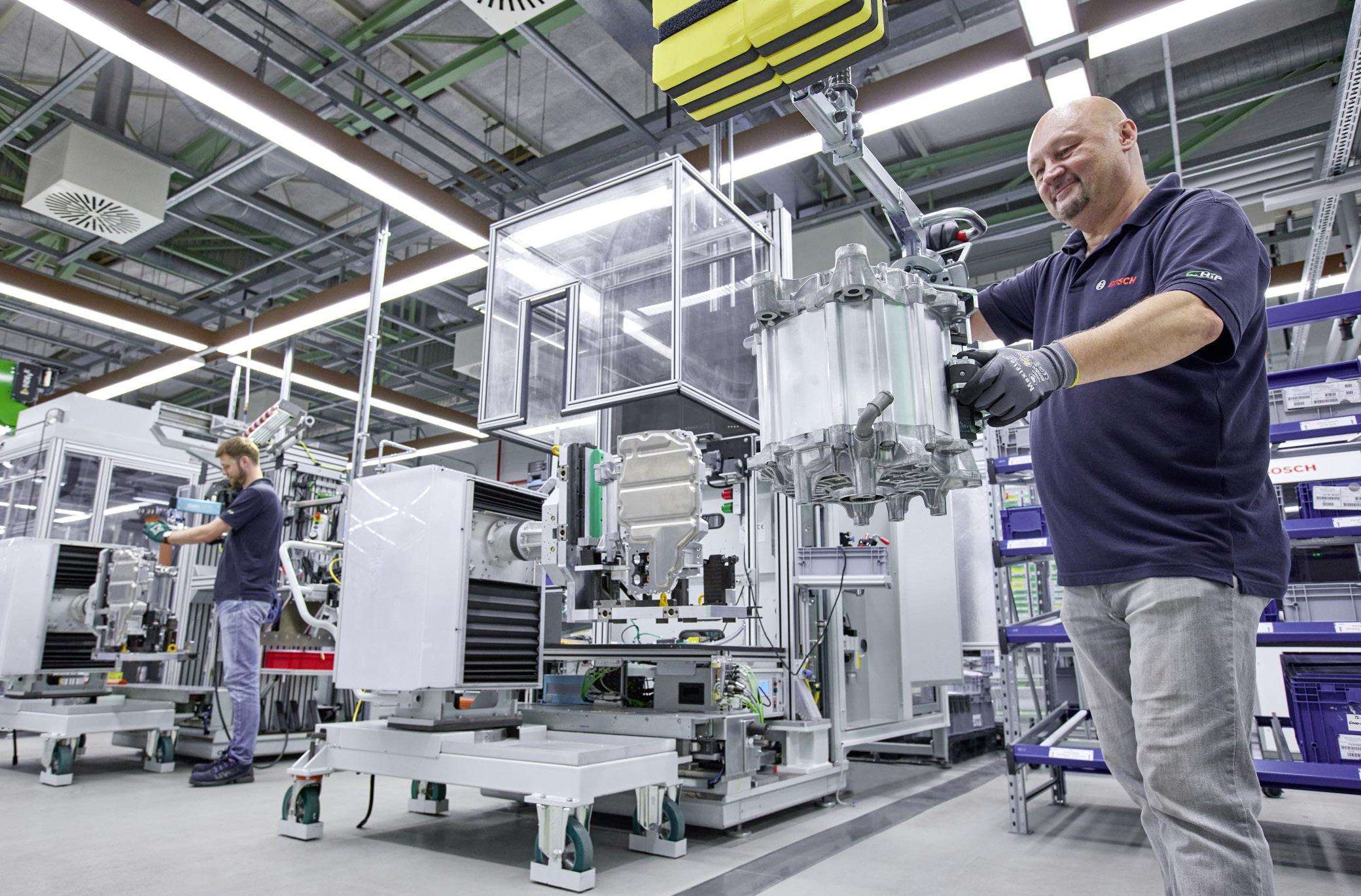


cell technology will be on the road. By 2025, that figure is expected to exceed 40,000.
Your recent press conference at IAA outlined your plans for creating zero emission powertrains. Could you explain your strategy and your targets?
We’ve worked on zero emission powertrains for many years now, for all varieties of transport. Our eBikes are very popular, for example, and we supply many of the key components required in electric cars. Since 2018, the company has acquired 170 different e-mobility production projects.
When it comes to zero emission powertrains, Bosch focuses on a broad product range, from the electric e-axle for delivery vans, to hydrogen fuel cell powertrains for 40-ton trucks.
In terms of your work with hydrogen, can you outline your plans?
We see hydrogen as a key technology of the next 10 years. Between 2021 and 2024, Bosch will have invested 1 billion euros in mobile fuel cells. The business has 3,400 engineers working on the hydrogen truck powertrain and we’re making quick progress.
A joint venture with the Chinese premium commercial vehicle manufacturer Qingling for fuel cell systems was launched in April 2021. A test fleet of 70 Qingling trucks has been on the road since then and it’s completed more than 100,000 test kilometres.
Our target is to make zero emission powertrains real and a key component to that is to achieve cost parity between diesel and hydrogen. We hope to reach that point by 2030.
The hydrogen engine is another alternative, especially for long-haul heavy trucks and for agricultural and construction machinery. A hydrogen engine can do everything a diesel engine can but it’s virtually climate neutral. It fills a gap among CO2-neutral powertrains. Although its efficiency is below that of the fuel cell at low and medium loads, it is above that level at full load. It’s likely to be used in heavy long-distance transport and especially agricultural and construction machinery.
Our expertise in hydrogen is really developing and we’ve recently announced that we’re going to develop the components that are required for the production of hydrogen. We’re developing eletrolysers, which will help to support the expansion of hydrogen production in Europe. If the electricity used is generated from renewable sources then this produces green hydrogen – that’s what we’re working towards.
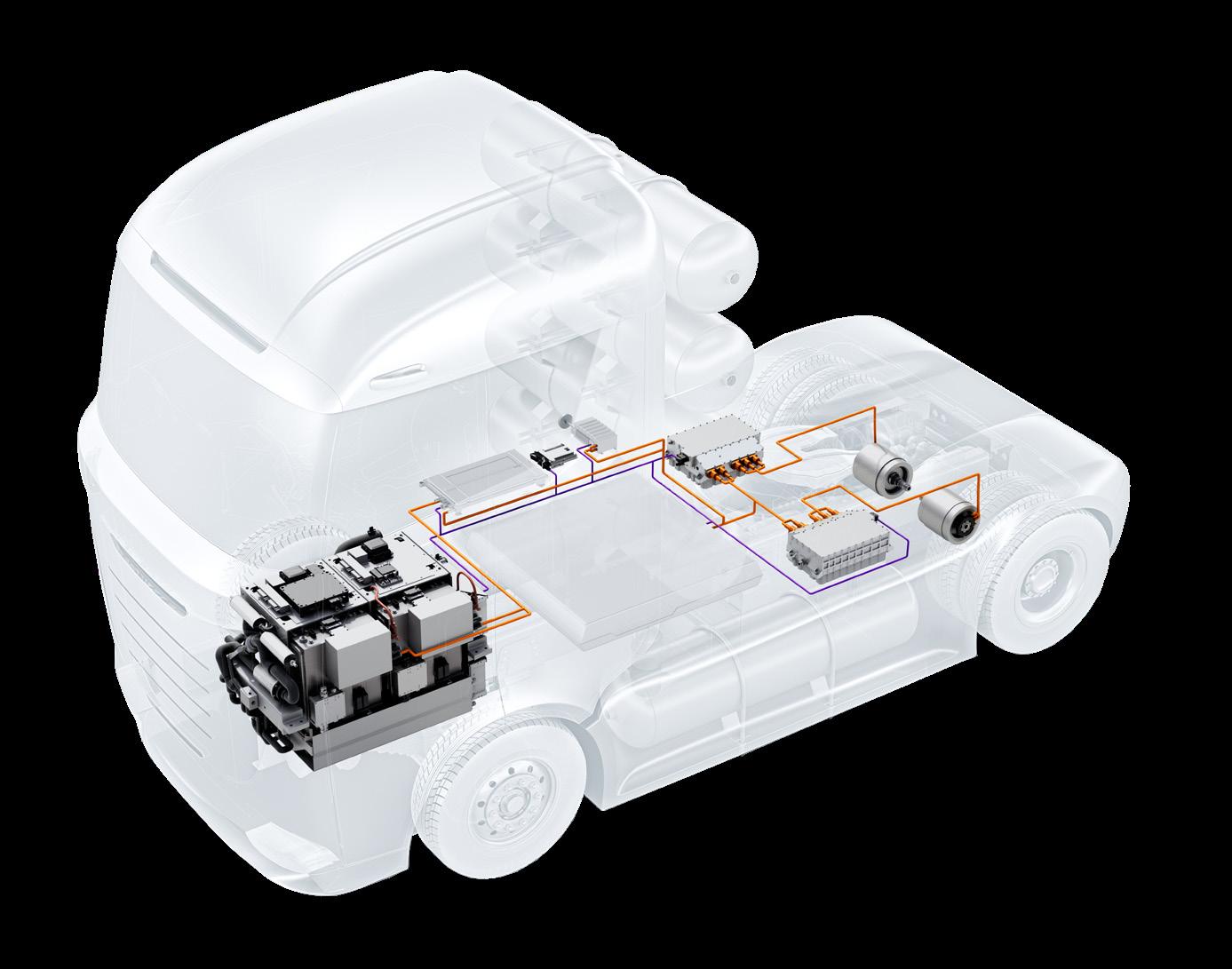
In what other ways is Bosch working to help those in the freight and logistics industry?
We’re the market leader in automated vehicles. As well as in cars, Bosch is developing automation solutions for commercial vehicles, thereby increasing both road traffic safety and the economic efficiency of road freight. Automated driving will arrive gradually, beginning with ever increasing levels of support from assistance systems such as automatic emergency braking or lane departure warning for trucks.
We are also leading the way with connected vehicles. We’re working on cloud-based services, and on freight monitoring, which includes the tracking and monitoring of trailers, transport containers, and goods in global supply chains.
We’re also developing secure truck parking because billions of pounds and euros are lost each year in Europe through theft. In fleet management, we also have the Xtended Access keyless vehicle access system for trucks. Many logistics companies still operate with analogue key management so we want to move this technology forward.
Charging is another area. We assume that commercial vehicles will be recharged mainly at privately owned spots, such as the depots of large fleets. The new Bosch service offers several features for this, including an energy management system that absorbs expensive load peaks when recharging a large number of vehicles. This solution is tailored especially to electromobility in logistics.
In what ways can fleet operators make the last mile of logistics greener?
Last mile is important. Moving to electric has many advantages. It can result in better air quality and lower noise pollution for residents, and fleet operators can often take advantage
Vonjy Rajakoba, managing director, Bosch UK
of improved average speeds, with vehicles like eCargo Bikes utilising cycle lanes and easing congestion in urban environments.
We know many logistics providers – especially those operating in urban environments - are increasingly looking towards electric vehicles like Bosch’s eCargo Bike, which offer sustainable, quiet and digitally advanced alternatives in urban traffic.
Bosch is also starting volume production of a new drive unit for such light commercial vehicles, consisting of an electric motor and an integrated inverter. The inverter controls the electric motor and provides the connection to the high-voltage battery.
With so many new products and alternative vehicles available to fleet operators there is already so much potential and flexibility to support a wide range of needs, and customer demands, across the differing urban environments in the UK. We hope that fleet operators will continue to explore the options available to them and consider driving a first and final mile carbon neutral approach wherever possible. L
FURTHER INFORMATION
www.bosch.com
Bosch’s hydrogen-powered lorry
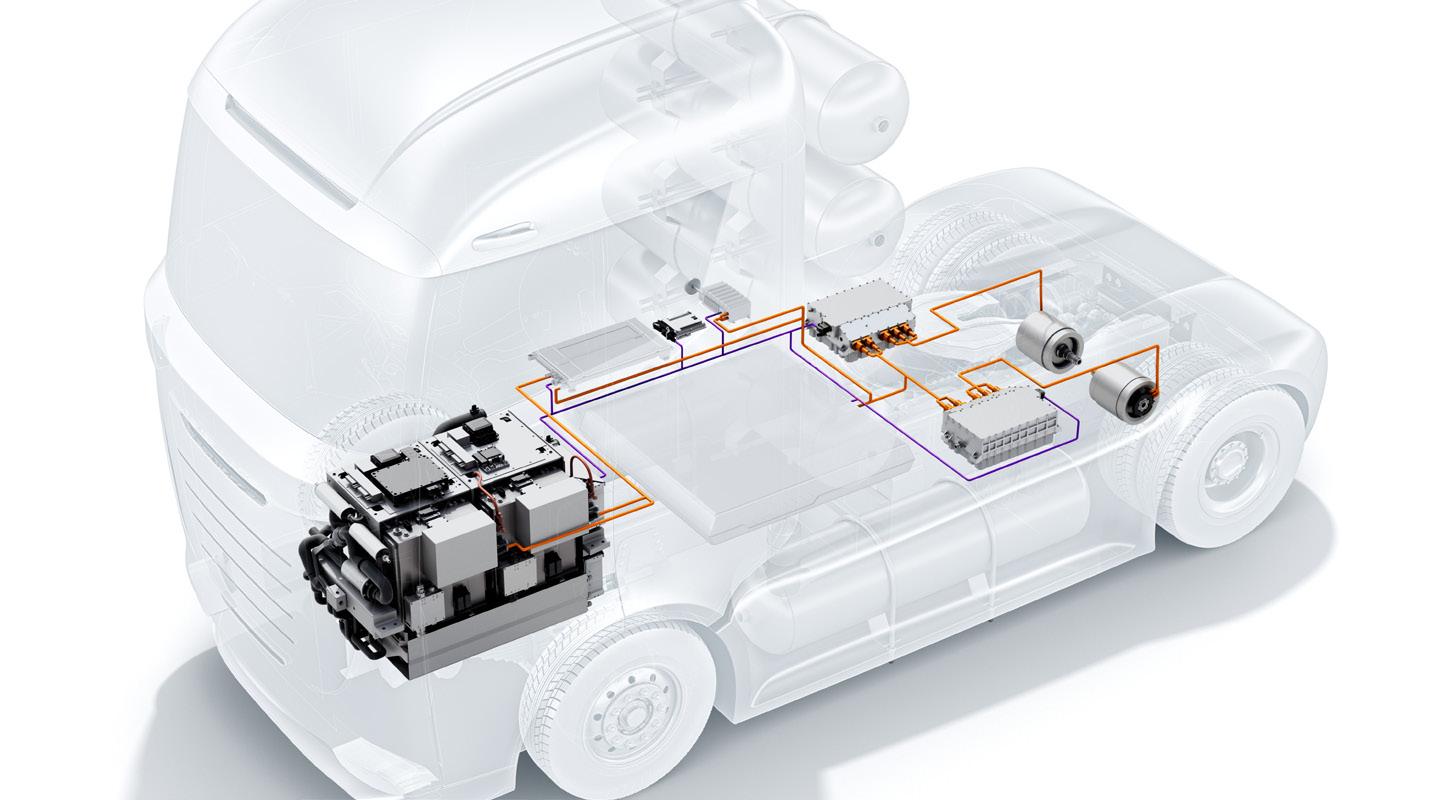


















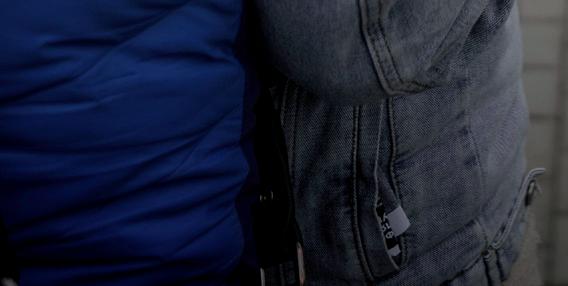
We need your help


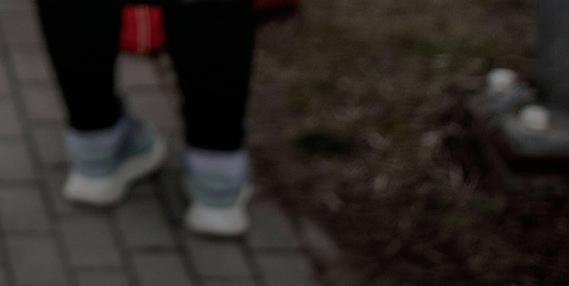
Millions of people are at risk of the deadly consequences of confl ict in Ukraine.
People are fl eeing their homes and families are being separated. Many are going without food or clean water. We must get critical support to those who need it most, in Ukraine and its bordering countries. Please donate to the DEC Ukraine Humanitarian Appeal, if you can.
Visit redcross.org.uk/shelter or text SHELTER to 70141 to make a £10 donation.
By texting, you consent to future telephone and SMS marketing contact from British Red Cross. Text SHELTER NO to 70141 to give £10 without consenting to calls and texts.*
Keeping in touch Your support makes a life-changing difference to people in crisis. We write to our supporters to update you about the work of the British Red Cross, and how you can help and donate in other ways. You can change the way we contact you at any time by visiting redcross.org.uk/keepingintouch or calling Freephone 0800 2800 491. Privacy statement The British Red Cross is committed to privacy and will use personal data for the purpose it was collected or other legitimate purposes we tell you about: for example, to provide goods, services or information you have requested or to administer donations or services we provide. We may also analyse data we collect to better understand the people who support us or those who use or deliver our services. Sometimes this means us combining that data with information from reliable public sources. Our research allows us to tailor communications and services in a more focused and cost-effective way, as well as better meeting your needs and the needs of others like you. However, we will never do this in a way that intrudes on personal privacy and will not use your data for a purpose that confl icts with previously expressed privacy preferences. For full details about how we use personal data, our legal basis for doing so and your privacy rights, please see our privacy notice online at redcross.org.uk/privacy. The DEC Ukraine Humanitarian Appeal will support people in areas currently affected and those potentially affected in the future by the crisis. In the unlikely event that we raise more money than can be reasonably and effi ciently spent, any surplus funds will be used to help us prepare for and respond to other humanitarian disasters anywhere in the world. For more information visit https://donate. redcross.org.uk/appeal/disaster-fund * Texts cost £10 +1 standard message (we receive 100%). For full T&Cs visit redcross.org.uk/mobile, must be 16+. The British Red Cross Society, incorporated by Royal Charter 1908, is a charity registered in England and Wales (220949), Scotland (SC037738), Isle of Man (0752) and Jersey (430).





